Super User
ANDRITZ to supply two tissue machines and stock preparation systems to Liansheng Pulp and Paper in Fujian, China
International technology group ANDRITZ has received an order from Liansheng Pulp & Paper to supply two tissue machines, including stock preparation equipment, to its mill in Zhangzhou, Fujian Province, China. Start-up is planned for the second quarter of 2022.
The two CrescentFormer tissue machines of type PrimeLineTM W 2000 have a design speed of 2,000 m/min and a working width of 5.65 m. Both are equipped with a large suction press and a PrimeDry Steel Yankee. The Yankee has a diameter of 20 ft. and is made entirely of steel. The PrimeDry Hood ST – steam-heated Yankee hood – is engineered with a steam-heated air system. It operates in a temperature range around 200 °C, which can provide an additional 15-25% drying capacity compared to the Yankee alone. The tissue machine, including all key components, will be manufactured at the ANDRITZ workshop in Foshan, China, while the hoods will be supplied by ANDRITZ Novimpianti, Italy.
ANDRITZ will also provide tailored automation systems, including PrimeControl MCS (Machine Control System), QCS (Quality Control System), pneumatic and hydraulic equipment, and lubrication systems.
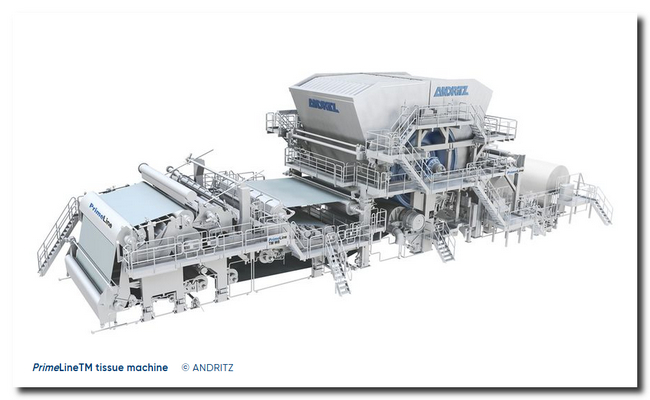
The stock preparation systems, using NBKP (Needle Bleached Kraft Pulp) and LBKP (Leaf Bleached Kraft Pulp) as raw material, will feature highly efficient ANDRITZ equipment such as FibreSolve FSV pulpers. As a technological highlight, special refining systems will be applied, consisting of a pulp screw press and an HC refiner, type CDIPL, operating for LBKP at a high consistency of 25%-30%. The innovative refining set-up will enable superior fiber properties with stable runnability. The scope of supply also includes approach flow systems and broke handling.
ANDRITZ has supplied over 10 stock preparation systems to Liansheng Paper since 2009. The successful cooperation as well as the excellent performance of installed technologies prompted the customer to trust in ANDRITZ once again. This order once again confirms ANDRITZ’s strong market position as one of the leading suppliers of machines and systems to the Chinese tissue industry and ANDRITZ’s expertise specifically in fast, wide tissue machines and resource-saving components like steel Yankees and steam-heated hoods.
Liansheng Pulp & Paper, a new production base of Liansheng Paper, was established in April 2020 in order to enter the household paper production industry. Liansheng Paper is the largest packaging paper manufacturer in Fujian, China, and has a special focus on environmentally friendly production.
ANDRITZ GROUP
International technology group ANDRITZ offers a broad portfolio of innovative plants, equipment, systems and services for the pulp and paper industry, the hydropower sector, the metals processing and forming industry, pumps, solid/liquid separation in the municipal and industrial sectors, as well as animal feed and biomass pelleting. Plants for power generation, flue gas cleaning, recycling, and the production of nonwovens and panelboard complete the global product and service offering. Innovative products and services in the industrial digitalization sector are offered under the brand name Metris and help customers to make their plants more user-friendly, efficient and profitable. The publicly listed group has around 26,800 employees and more than 280 locations in over 40 countries.
ANDRITZ PULP & PAPER
ANDRITZ Pulp & Paper provides equipment, systems, complete plants and services for the production of all types of pulp, paper, board and tissue. The technologies and services focus on maximum utilization of raw materials, increased production efficiency and sustainability as well as lower overall operating costs. Boilers for power generation, flue gas cleaning systems, plants for the production of nonwovens and panelboard (MDF), as well as recycling and shredding solutions for various waste materials also form a part of this business area. State-of-the-art IIoT technologies as part of Metris digitalization solutions complete the comprehensive product offering.
International Paper Receives SBTi Approval for its Science-based Carbon Reduction Target
International Paper (NYSE: IP) have just announced our 35% Greenhouse Gas reduction target has been approved by Science Based Targets initiative (SBTi) as consistent with levels required to meet the goals of the Paris Agreement. The targets covering greenhouse gas emissions from International Paper's operations (scopes 1 and 2) are consistent with reductions required to keep warming to well-below 2°C. Additionally, International Paper's target for the emissions from its value chain (scope 3) meet the SBTi's criteria for ambitious value chain goals, meaning they are in line with current best practice.
![]() The approval formally recognizes International Paper as a leader in the low-carbon transition, and makes the company one of the first North American organizations in the paper and packaging industry with approved targets, joining over 1,000 others across industries and around the world.
The approval formally recognizes International Paper as a leader in the low-carbon transition, and makes the company one of the first North American organizations in the paper and packaging industry with approved targets, joining over 1,000 others across industries and around the world.
"As a global leader in the forest products industry, International Paper is uniquely positioned to drive significant progress in the low-carbon circular economy," said Mark Sutton, Chairman and Chief Executive Officer, International Paper. "We are committed to leading our industry towards a more sustainable future."
In 2020, International Paper released its Vision 2030 goals, which demonstrate its commitment to building a better future for people, the planet and the company. Through the goals, one of the world's leading producers of renewable fiber-based packaging and pulp announced plans to advance its contributions to the circular, low-carbon economy while building on its commitments to its people and communities.
The company has committed to achieving the following goals by 2030:
- Healthy & Abundant Forests: Lead forest stewardship efforts globally
- Thriving People & Communities: Promote employee well-being by providing safe, caring and inclusive workplaces and strengthen the resilience of our communities
- Sustainable Operations: Improve our climate impact and advance water stewardship
- Renewable Solutions: Accelerate the transition to a low-carbon economy through innovative fiber-based products
Each goal includes one to three specific, measurable targets, enabling the company to track its progress throughout the decade. The targets include commitments to reduce greenhouse gas emissions by 35% from 2019 levels, to reduce water usage by 25% and to create innovative products that are 100 percent reusable, recyclable or compostable.
"The SBTi approval means we've aligned our own sustainability ambitions with the Paris agreement, and demonstrates International Paper's commitment to building a better future for people, the planet and our company," continued Sutton.
The Science Based Targets initiative (SBTi) helps companies establish science-based targets to reduce greenhouse gas emissions and transform business operations to fit the future low-carbon economy. Targets adopted by companies to reduce greenhouse gas (GHG) emissions are considered to be "science based" if they are in line with what the latest climate science says is necessary to meet the goals of the Paris Agreement – to limit global warming to well below 2°C above pre-industrial levels and pursue efforts to limit warming to 1.5°C. SBTi is a collaboration between CDP, United Nations Global Compact (UNGC), World Resources Institute (WRI), World Wide Fund for Nature (WWF) and one of the We Mean Business Coalition commitments.
About International Paper
International Paper (NYSE: IP) is a leading global producer of renewable fiber-based packaging and pulp products with manufacturing operations in North America, Latin America, North Africa and Europe. We produce packaging products that protect and promote goods, and enable worldwide commerce, and pulp for diapers, tissue and other personal hygiene products that promote health and wellness. We are headquartered in Memphis, Tenn. and employ approximately 38,000 colleagues. Net sales for 2020 were $21 billion*. In Russia, the Company has a 50/50 joint venture, Ilim Group, the country's largest integrated manufacturer of pulp and paper and its largest foreign-domestic alliance in the forestry products sector. For more information about International Paper, our products and global citizenship efforts, please visit internationalpaper.com.
*Inclusive of our former pulp and paper mill in Kwidzyn, Poland, which was sold on August 6, 2021, and our former global papers business, which became a standalone, publicly traded company on October 1, 2021.
Intertrade Hellas S.A. chooses A.Celli Paper for its new tissue production line
A.Celli Paper will supply a complete turnkey solution for the production of tissue paper, from stock preparation up to the handling of the finished reels, to the European brand Intertrade Hellas S.A., the leading converter of base paper and sanitary tissue products in the Greek Market.
The turnkey line starts with specifically designed solutions for the preparation of stock from virgin fiber, which will take into account the specific customer needs in terms of layout, quality and throughput.
The Tissue machine included in the supply, the A.Celli iDEAL® Master 2000L, represents the most advanced and efficient solution through which A.Celli Paper underlines its role as a cutting-edge partner in the industry. This tissue machine features a web width of 5600 mm, a design speed of 2100 m/min and a working speed of 2000 m/min, all this to reach a production capacity of 244 tpd (20 gsm) or 221 tpd (16 gsm). The first-rate performance provided by the A.Celli line will ensure the desired increase in the production level and the improvement of the quality of the finished product.
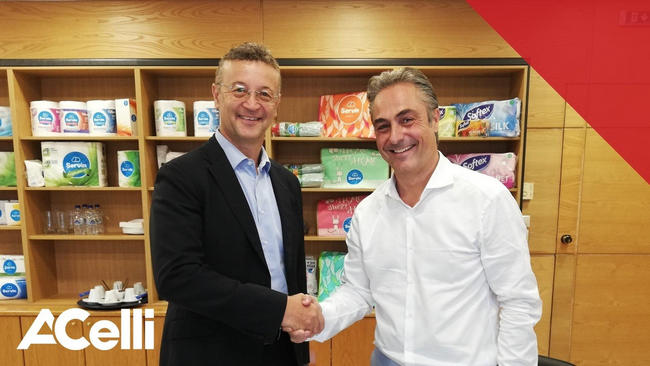
Another key factor that led Intertade Hellas S.A. to choose A.Celli Paper was our capability to provide the Greek converter with a double format 16” Forged Yankee Dryer with a total width of 6085 mm.
Thanks to this technology, it is possible to substantially reduce the thermal energy requirement while maintaining the high drying capacity and ease of maintenance typical of this solution.
A.Celli will also provide Intertrade Hellas with:
- A latest generation three-ply E-WIND® T200 slitter rewinder with a width of 5600 mm and a speed of 1800 m/min
- A top-notch R-WAY® reel handling system, consisting of conveyor belt, wrapper, up-ender and labeling system.
- Our renowned DCS control system and the innovative, Industry 4.0-ready automation platform capable of integrating the various systems implemented in the production plant.
Finally, the supply will include a wide range of services provided by the engineers of A.Celli Paper’s technical office: a group of experts with proven years of experience in the industry.
The machines have been pre-assembled at our headquarters located in Lucca, Italy, while the start-up is scheduled for the first quarter of 2022. A.Celli Paper is proud to offer our customer a leap forward in quality, aiming for important and ambitious production milestones.
"We are very excited working together with A. Celli for this turn key project. The new Tissue Machine, thanks to its efficiency and reliability, will be able to supply the Greek market with the highest quality of tissue. At last Greece will produce its own paper and, after many years, the country will become self-sufficient. It is indeed a historic moment, and we are very proud of it" says Ioannis Delidimos, CEO of Intertrade Hellas S.A.
“This investment boasts an important technological and strategic value. It’s a top-notch project carried out with a perfect partner: Intertrade Hellas. This is a state of the art, double width Tissue production line designed from the very beginning with sustainability, carbon footprint reduction and lower energy consumption in mind. A.Celli is fully committed to supply high value solutions to its customers" says Alessandro Celli, member of the A.Celli Paper Board of Directors.
ntertrade Hellas S.A. - Company Profile
Intertrade Hellas S.A., founded in 1992, started its activity with the production of paper products. Its current focus is the design and manufacturing of products synonymous with top quality and of high added value for both the consumer and the professional, all at a very competitive price. Over the past decade the company, which owns three factories in Acharnes and Metamorfosi and one factory in Inofyta, Viotia, has expanded its activities, strengthened its specialization in paper processing, invested in R&D and created new series of innovative products.
Over 300 global installations of digital solutions confirm the success of Voith's Papermaking 4.0 portfolio
With its digitalization and automation portfolio Papermaking 4.0, Voith Paper is an international pioneer and innovation driver in paper production. The technology company now has more than 300 digital installations worldwide. The numerous references prove how digitalization continuously optimizes the production process in terms of efficiency, sustainability and quality.
"For more than five years, customers worldwide have been relying on our digital solutions. The areas of application are very different – with our individual industrial application, we offer customized solution packages," says Dr. Jürgen Abraham, President Products & Services and Digital Business Officer at Voith Paper. "Based on our expertise in digitalization, automation and artificial intelligence, we are continuously developing new possibilities for the paper production of the future."
With concrete approaches, Voith experts and the OnPerformance.Lab advise, accompany and support customers on their way to a digitalized paper mill. The IIoT platform OnCumulus, which provides fast and reliable access to data from machines and systems, serves as the basis. Using the collected and evaluated data, the applications lead to performance improvements along the entire process chain. The robust digital solutions feature the highest security standards, are implemented in the shortest possible time and show continuous production improvements from day one. In addition to long-term efficiency gains, Papermaking 4.0 solutions enable significantly more sustainable production.
"Digitalization is an important lever to support the improvement of all performance areas of the operation: customer service, efficiency and flexibility," says Mario Naldini, COO BU Paper & Security at Fedrigoni. "The OnEfficiency solution implemented in Fabriano by Voith represents a fundamental milestone in our digital transformation. With a payback period of less than one year, the economic benefits are significant."
"With the help of Voith's leading technologies, we can improve the sustainability of our production," says Dr. Thomas Welt, CEO at Laakirchen Papier AG. "In addition to the diverse references, Voith's decades of expertise in sustainable papermaking and extensive research and development activities convinced us. Innovations from the Papermaking 4.0 portfolio, including OnEfficiency.Strength, are already being used successfully at our PM 10. In addition, we are a pilot customer for the new OnEfficiency.BreakProtect and OnView.Energy solutions."
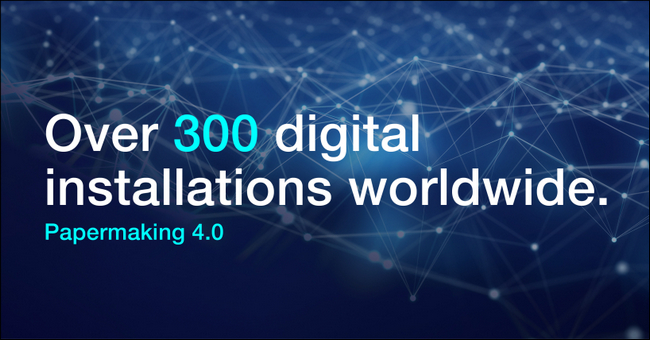
Voith’s bundled know-how and specially-focused innovation on the paper industry are unique in the market. For each initial situation, Voith offers paper manufacturers customized complete solutions consisting of digitalization, automation and expert knowledge. In line with the full-liner approach, Voith develops specific sensor technology, for example, and supports implementation throughout the entire process for the best result.
Grupo Gondi also implemented MCS, DCS and QCS automation solutions as well as Voith's OnCare.Health and OnCare.Asset digital condition monitoring and maintenance solutions on PM 7 at the Papel y Empaques mill. "Through intensive team work, coaching and training, all team members in Monterrey were quickly trained and up to speed," says Francisco Javier Lozano Hernandez, Maintenance Planning Manager at Grupo Gondi. "OnCare.Health now monitors the current condition of the plant at all times, registers even the smallest anomalies, sends warning signals to the operators and independently develops optimization options. Combined with the intelligent maintenance management OnCare.Asset, the solutions will increase and sustain a world class machine availability."
In order to continue to provide impetus in the digitalization and automation environment, Voith Paper relies on agile, customer-centric development processes. One result of this approach is OnView.DigitalEye, which won this year's AI Champions Award. With the help of the digital analysis tool, recovered paper quality can be precisely determined for the first time even before stock preparation.
"New innovative solutions like OnView.DigitalEye are important components of Papermaking 4.0 and autonomous paper production," explains Dr. Jürgen Abraham. "In the future, digitalization and automation will grow ever closer together. We also recently presented an innovative operating concept as part of our Papermaking Vision. With the help of intelligent algorithms and an intuitive design, this will ensure maximized user-friendliness, production capacity and efficiency in the future."
With the campaign "PAPER IS ON", Voith will be highlighting the focus topics of the digital product portfolio Papermaking 4.0 in the near future: full-line supplier, efficiency, sustainability, cloud solutions, automation and innovation. Learn more and visit our homepage: voith.com/PaperIsOn.
About the Voith Group
The Voith Group is a global technology company. With its broad portfolio of systems, products, services and digital applications, Voith sets standards in the markets of energy, paper, raw materials and transport & automotive. Founded in 1867, the company today has more than 20,000 employees, sales of € 4.2 billion and locations in over 60 countries worldwide and is thus one of the larger family-owned companies in Europe.
The Group Division Voith Paper is part of the Voith Group. As the full-line supplier to the paper industry, it provides the largest range of technologies, services and products on the market and offers paper manufacturers holistic solutions from a single source. The company’s continuous stream of innovations facilitates resource-conserving production and helps customers minimize their carbon footprint. With its leading automation products and digitalization solutions from the Papermaking 4.0 portfolio, Voith offers its customers state-of-the-art digital technologies to improve plant availability and efficiency for all sections of the production process.
Mondi launches IQ EXTRALIGHT, a new opaque paper for inserts of medications, leaflets, manuals and legal text applications
Mondi, a global leader in packaging and paper, launches IQ EXTRALIGHT. The new opaque paper solution is produced at Mondi Neusiedler, Austria, and targets the uncoated premium segment in opaque paper for inserts of medications and cosmetics, operating manuals, catalogues, directories or legal text application. IQ EXTRALIGHT offers an excellent printability, folding performance and is developed for both web and sheet-fed offset printing. Mondi’s new paper solution is FSC™ certified and optionally available as carbon neutral to support customers in improving their CO2 balance. It is part of Green Range, Mondi´s umbrella trademark for sustainable paper solutions, and produced in compliance with the FSC™ certification scheme as well as with EC regulation 1935/2004 on materials and articles intended to come into contact with food. The new IQ EXTRALIGHT paper is now available in folio and reels in 40, 45, 50 and 60 g/m² across Europe.
- IQ EXTRALIGHT targets the uncoated premium segment in opaque paper and is produced at Mondi Neusiedler, Austria
- Mondi’s IQ EXTRALIGHT offers excellent printability, folding performance and is optimised for web and sheet-fed offset printing
- IQ EXTRALIGHT is FSC™ certified, has a food safety certification and is optionally available as carbon neutral
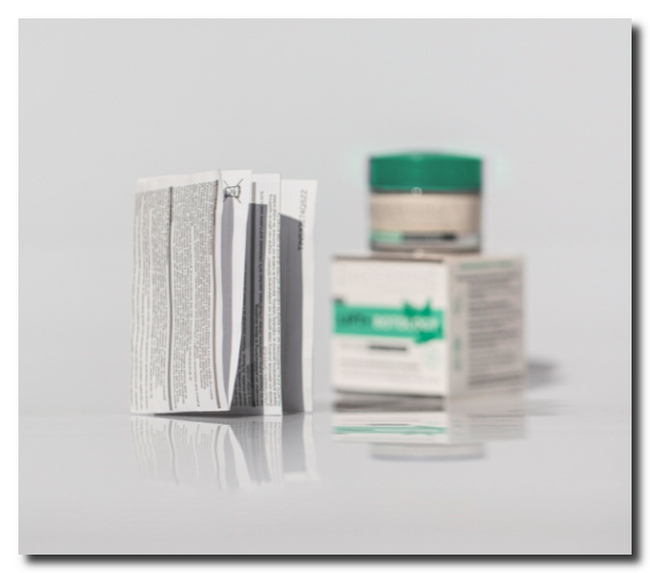 The new opaque paper solution IQ EXTRALIGHT from Mondi targets the uncoated premium segment in opaque paper for inserts of medications and cosmetics, operating manuals, catalogues, directories or legal text application.
The new opaque paper solution IQ EXTRALIGHT from Mondi targets the uncoated premium segment in opaque paper for inserts of medications and cosmetics, operating manuals, catalogues, directories or legal text application.
Ideal solution for high productivity print runs
Thanks to its excellent printability and runnability, IQ EXTRALIGHT offers high productivity print runs. The optimised folding performance of Mondi’s new opaque paper further ensures trouble-free processing due to its excellent folding properties and high stiffness including a high luminescence factor for automatic scanning. These attributes make IQ EXTRALIGHT the ideal solution for clients requiring a high standard in both web and offset printing. The high opacity of IQ EXTRALIGHT guarantees excellent readability, supporting the automated quality control by its outstanding sheet formation.
“It is our aim to constantly produce high quality products that not only meet the evolving needs of our clients but are also sustainable by design. With our new IQ EXTRALIGHT we offer a high quality product to the uncoated premium segment in opaque paper and enable our clients to take their web and sheet-fed offset printing machines to a new, even more efficient level,” says Johannes Klumpp, Marketing & Sales Director at Mondi Uncoated Fine Paper.
About Mondi Uncoated Fine Paper
Uncoated Fine Paper is a business unit of Mondi Group. In six operating sites in Austria, Slovakia, Russia, and South Africa, Mondi Uncoated Fine Paper produces pulp and environmentally sound office and professional printing papers tailored to the latest professional digital and offset print technologies. The company complies with the strictest international certification standards to support sustainable production processes through the responsible management of forest, water and air resources. All Mondi uncoated fine papers belong to the Green Range of papers that are FSC™ or PEFC™ certified, 100% recycled or bleached entirely without chlorine.
Its renowned brands such as Color Copy, PERGRAPHICA®, NAUTILUS®, NEUJET®, IQ, MAESTRO®, BIO TOP 3®, DNS®, Snegurochka or ROTATRIM are used in office environments on laser or inkjet printers and by professional printers on digital or offset presses to create brochures, transactional material, folders, invitations, business cards, letterheads or other high-impact communication. Converters appreciate the excellent printability and smooth handling of Mondi’s professional printing papers.
About Mondi
Mondi is a global leader in packaging and paper, contributing to a better world by making innovative packaging and paper solutions that are sustainable by design. Our business is integrated across the value chain – from managing forests and producing pulp, paper and plastic films, to developing and manufacturing effective industrial and consumer packaging solutions. Sustainability is at the centre of our strategy and intrinsic in the way we do business. We lead the industry with our customer-centric approach, EcoSolutions, where we ask the right questions to find the most sustainable solution. In 2020, Mondi had revenues of €6.66 billion and underlying EBITDA of €1.35 billion.
Mondi has a premium listing on the London Stock Exchange (MNDI), and a secondary listing on the JSE Limited (MNP). Mondi is a FTSE 100 constituent, and has been included in the FTSE4Good Index Series since 2008 and the FTSE/JSE Responsible Investment Index Series since 2007
Paper Excellence Welcomes Domtar Into Its Group of Companies
The Paper Excellence Group, a global diversified manufacturer of pulp and specialty, printing, writing, and packaging papers, has just announced the successful closing of its previously-announced acquisition of Domtar (NYSE: UFS) (TSX: UFS), a leading provider of fiber-based products. The acquisition further establishes Paper Excellence Group as an industry leader, significantly broadening its global reach and expanding its product range to include airlaid nonwovens and containerboard, in addition to significantly increased pulp and paper production.
Domtar will operate as a stand-alone business entity within the Paper Excellence Group, with Domtar’s current CEO and management team remaining in place. There are no further changes to operating locations, business plans, or Domtar’s employee base at this time.
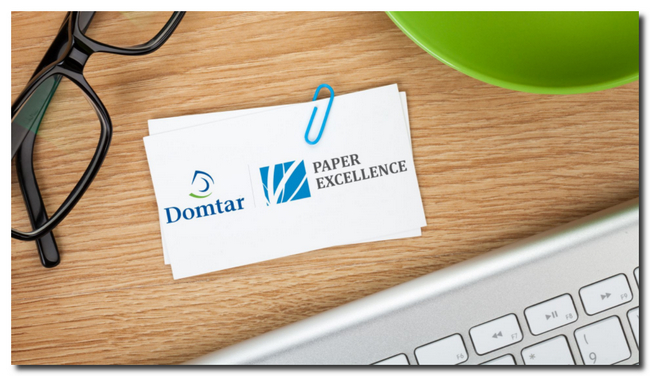
“Today marks a major milestone in the growth of the Paper Excellence Group,” said Joe Ragan, Global Chief Financial Officer of Paper Excellence. “We are excited to welcome Domtar and its impressive team to the Paper Excellence family. Under John Williams and Domtar’s capable management, we look forward to Domtar’s continued success across its manufacturing network in the US and Canada.”
“As part of the Paper Excellence Group, the future is bright for Domtar,” said John Williams, President and CEO of Domtar. “We will continue to earn the right to be the supplier of choice to our customers with sustainable paper, pulp and packaging products.”
Under terms of the agreement, Domtar stockholders received USD$55.50 for each share of Domtar common stock. Domtar common stock will no longer be listed for trading on the New York Stock Exchange or the Toronto Stock Exchange.
Advisors
Barclays served as exclusive financial advisor to Paper Excellence and Latham & Watkins LLP, McMillan LLP, Miller Titerle + Co., and Mehigan LLP, served as legal advisors to the Paper Excellence Group.
Morgan Stanley & Co. LLC, served as exclusive financial advisor to Domtar and Debevoise & Plimpton LLP, and Osler, Hoskin & Harcourt LLP, served as legal advisors to Domtar.
About Paper Excellence Group
The Paper Excellence Group, headquartered in Southern California, is a privately-held diversified manufacturer of pulp and specialty, printing and writing, and packaging papers, producing over 7 million tons annually with a workforce of over 10,000 in its nearly 40 locations across the Americas and Europe. Through its individual business units, the Group leverages its operational excellence and sustainable high-quality, cost-effective products to deliver high quality pulp and paper to its customers around the world. For more information on Paper Excellence, please visit www.paperexcellence.com. To learn more about Domtar, visit www.domtar.com.
Kemira selected as primary chemical supplier for Cascades’ new recycled board mill in North America
Kemira has been selected as the primary chemical supplier for Cascades’ new recycled board mill in North America. Cascades, a Canadian-based leading producer of sustainable packaging solutions, is converting their Bear Island mill in Virginia, US, to a containerboard machine that will produce lightweight 100% recycled linerboard and medium grades for the North American market.
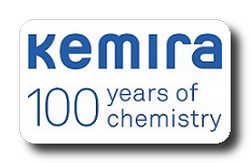 Kemira will supply majority of the process and functional chemicals as well as chemistry application expertise needed for the end-to-end board manufacturing process at the Bear Island mill.
Kemira will supply majority of the process and functional chemicals as well as chemistry application expertise needed for the end-to-end board manufacturing process at the Bear Island mill.
The Bear Island mill grade conversion is expected to be completed by the end of 2022, and once in full operation, the mill will have an annual production capacity of about 465,000 tons.
“Converting a paper machine to produce a new grade and meet new quality parameters is a challenging task and requires complete re-design and re-optimization of chemistry applications. We are proud that Cascades has chosen Kemira to be their partner in this major machine start-up. With our total chemistry management and application expertise, we can help the mill achieve their product quality and productivity targets as soon as possible,” states Tuija Pohjolainen-Hiltunen, SVP, Commercial at Kemira Pulp & Paper Americas.
After start-up, Kemira will continue to operate the chemical applications at the mill and in addition, implement digital services to support continuous improvement and maximize machine performance.
“Our KemConnect digital services allow real-time visibility and predictive capabilities for deeper understanding of chemistry impact and process performance, which provides opportunities to increase operational efficiency, quality, and productivity,” concludes Tuija Pohjolainen-Hiltunen.
Kemira is a global leader in sustainable chemical solutions for water intensive industries. We provide best suited products and expertise to improve our customers’ product quality, process and resource efficiency. Our focus is on pulp & paper, water treatment and oil & gas. In 2020, Kemira had annual revenue of around EUR 2.4 billion and around 5,000 employees. Kemira shares are listed on the Nasdaq Helsinki Ltd. www.kemira.com
Paper that connects
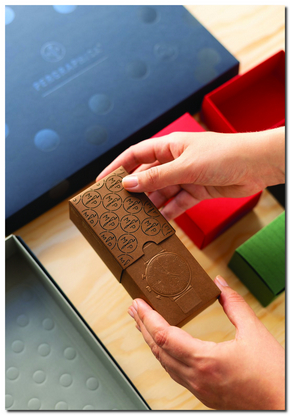 The more digitalised the modern world becomes, the more people are looking for a counterbalance to the digital overstimulation in the physically tangible realm. This trend, called high-tech/high-touch, has been anticipated for decades. Understanding this trend can be an advantage in the never-ending race between digital and print media.
The more digitalised the modern world becomes, the more people are looking for a counterbalance to the digital overstimulation in the physically tangible realm. This trend, called high-tech/high-touch, has been anticipated for decades. Understanding this trend can be an advantage in the never-ending race between digital and print media.
Flipping through the pages of a coffee table book or unwrapping tastefully packaged online purchases – this is what relaxation looks like for many people during the Covid-19 pandemic, especially after a long day of staring at screens. Contact restrictions and working from home have shifted both work and leisure into the digital space. However, digital information services have been challenging print products for the rank of the top mass medium of choice well before the pandemic. Digital media deliver exactly the kind of information we need, or simply want, in everyday life at the touch of a button – fast and easy, anytime, anywhere. This makes anything that is tangible and real all the more precious during a time of digitally maximised efficiency, when physical contact and sensory experiences of any kind are few and far between. The more time people spend in the digital realm, the more they crave something real, something tangible, something that allows them to slow down and enjoy the moment.
How the high-touch megatrend affects the paper industry
This sense of longing is best explained using the principle of high-tech/high-touch. Rapid technological progress (high-tech) stands in contrast to a need for sensory impressions, human interaction and personal contact (high-touch). This conflict was outlined in 1982 by futurologist John Naisbitt in his best-selling book ‘Megatrends – Ten new directions transforming our lives’ – back when digitalisation as we experience it today was just getting started. John Naisbitt was one of the first authors to coin ‘megatrend’ as a phenomenon. Unlike fashion, product and industry trends, which are relatively short-lived and limited in their range of impact, a megatrend is a profound change that is woven into the fabric of society and business over a period of years, or even decades.

Megatrends also have an impact on the way we consume products and media. Like the smell of a new book or a premium package with relief embossing, print products with their sensory aspect can provide the perfect high-touch antithesis in the jungle of high-tech communication channels. They address the primal human need for touch, which hasn’t been made easier to satisfy due to contact restrictions and hygiene regulations during the fight against Covid-19. Touch provides a sense of direction in an increasingly complex world, grounding people in the here and now like no other sensory impression.
In print we trust
Furthermore, flipping through books and magazines or unwrapping a package takes place offline, in an oasis far away from digital information overload. As a result, engaging with print products is becoming an increasingly emotional experience, luxury people consciously take time out for. In the age of digital overstimulation, print products are far away from becoming obsolete, they are simply experiencing a shift in meaning: from simple mass-produced goods to works of art in their own. Rather than a vehicle for information, they are increasingly perceived as a vehicle for experiences. Think of typical everyday situations: a bookshelf full of high-quality volumes evokes more emotions in most people than even the most extensive e-book collection; recipients engage more strongly with a handwritten letter than with hundreds of e-mails.
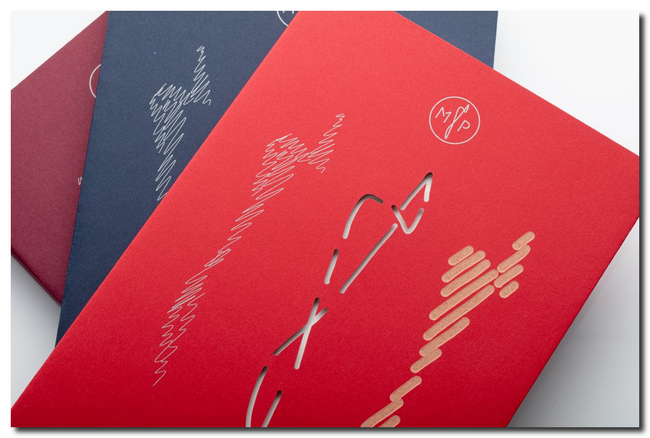
Many people associate paper with commitment, consistency and quality. Subconsciously, they recognise the craftsmanship and creativity that has gone into the design of high-quality print products. Especially in the case of media, print products also tend to enjoy more trust than digital alternatives, due to rampant fake news among other trends and factors. With print media, consumers intuitively assume greater regulation and more careful selection than it would be the case with purely digital media. Thus, print media enjoys more credibility.
The aesthetic impact of print products, be they media products, packaging solutions or works of art, should also be taken into consideration. While most digital media are similar in their basic structure, paper can be used to create exclusive-looking, distinctive products. There are virtually no limits to creativity in terms of material properties and design. The skilful use of print offers manufacturers, packaging specialists and publicists an effective tool for standing out from the crowd.
Paper bridges high-tech and high-touch
Manufacturers of print products can make targeted use of their knowledge of the emotional impact of paper to create unique products. High-tech – think, state-of-the-art printing and finishing processes, high-quality source materials, and expertise – help to craft the desired high-touch effects. But in order to achieve this, the paper used as the base material must have a lot to offer, both in visual and haptical appeal.
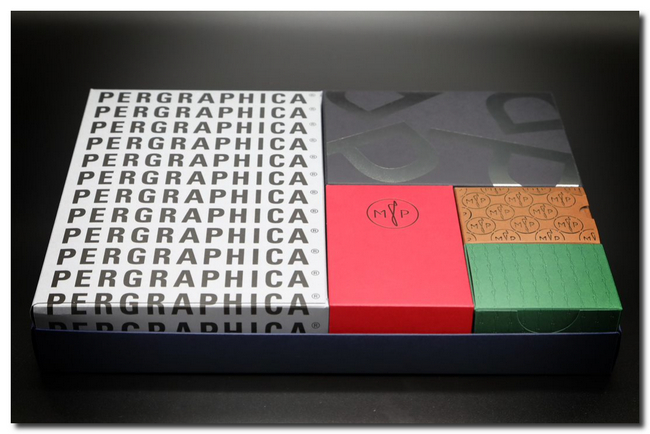
That's why Mondi, a leading paper and packaging expert, specialises in providing the proper source materials for unforgettable premium print products. The individual paper brands in Mondi's portfolio are tailored to the specific requirements of different paper products and the associated printing processes. When designing the portfolio, Mondi always aims to interlock the three key factors of look, feel and sustainability. The product range extends from through-dyed premium papers to sustainable recycled printer paper and novelty papers in which part of the cellulose is replaced by grass fibres – for greater tear strength and sustainability. In product development, Mondi is consistently geared to current consumer trends such as the preference for rough, natural and high-quality-looking paper surfaces. In terms of finishes, hot and cold foils are currently popular, with their smooth, shiny surface providing a captivating contrast to the rough paper surface.
The toolbox of luxury
With its PERGRAPHICA® range of uncoated design paper, Mondi addresses the needs of artists as well as manufacturers of premium packaging by offering a wide range of intense, rich colours and a particularly high-quality texture and printability to provide unique high-touch experiences.

For five years, the Mondi PERGRAPHICA® range of design papers has been lean and mean, consisting of three shades of white and two surfaces in both machine directions in the key sizes and weights. Later, an ivory paper for book printing and a black paper for creative and packaging applications were added. In late 2020, Mondi has added 30 new, vibrant colours to the Pergraphica colour range, including ten dark and deep colours as well as PERGRAPHICA® Infinite Black. Dark and intense shades are notoriously difficult to produce, but very sought-after by manufacturers of packaging for luxury items due to their classy appeal. They have to be produced in a way that makes them withstand some tear and wear without losing their unique properties.
The finishing touch
As PERGRAPHICA® papers are also extremely suitable for finishing, they are a popular packaging material for gifts of all kinds and other high-end products. Embossing, debossing and hot foil stamping processes show the level of detail that can be achieved with the right paper, using the right techniques. With laser cutting, tiny patterns can be embedded in the paper. Laser engraving is a particularly interesting choice for coloured papers, as the heat of the laser changes the colour on the engraved areas. PERGRAPHICA® is part of the Mondi CO2 neutral portfolio and is FSCTM certified. This makes PERGRAPHICA® the paper of choice for sustainable reasons as well as looks.
With many different paper grades as well as printing and finishing techniques, manufacturers of print products have a wide range at their disposal to create lasting sensory impression. In this way, the printing industry can differentiate itself with unique products, even and especially in the wake of digitalisation.
About Mondi Uncoated Fine Paper
Uncoated Fine Paper is a business unit of Mondi Group. In six operating sites in Austria, Slovakia, Russia, and South Africa, Mondi Uncoated Fine Paper produces pulp and environmentally sound office and professional printing papers tailored to the latest professional digital and offset print technologies. The company complies with the strictest international certification standards to support sustainable production processes through the responsible management of forest, water and air resources. All Mondi uncoated fine papers belong to the Green Range of papers that are FSC™ or PEFC™ certified, 100% recycled or bleached entirely without chlorine.
Its renowned brands such as Color Copy, PERGRAPHICA®, NAUTILUS®, NEUJET®, IQ, MAESTRO®, BIO TOP 3®, DNS®, Snegurochka or ROTATRIM are used in office environments on laser or inkjet printers and by professional printers on digital or offset presses to create brochures, transactional material, folders, invitations, business cards, letterheads or other high-impact communication. Converters appreciate the excellent printability and smooth handling of Mondi’s professional printing papers.
About Mondi
Mondi is a global leader in packaging and paper, contributing to a better world by making innovative packaging and paper solutions that are sustainable by design. Our business is integrated across the value chain – from managing forests and producing pulp, paper and plastic films, to developing and manufacturing effective industrial and consumer packaging solutions. Sustainability is at the centre of our strategy and intrinsic in the way we do business. We lead the industry with our customer-centric approach, EcoSolutions, where we ask the right questions to find the most sustainable solution. In 2020, Mondi had revenues of €6.66 billion and underlying EBITDA of €1.35 billion.
Mondi has a premium listing on the London Stock Exchange (MNDI), and a secondary listing on the JSE Limited (MNP). Mondi is a FTSE 100 constituent, and has been included in the FTSE4Good Index Series since 2008 and the FTSE/JSE Responsible Investment Index Series since 2007.
AFT SUPPLYING POM SYSTEM TO SAPPI BOARD MILL IN SOUTH AFRICA
Sappi has selected AFT to add new POM® Technology to their approach flow system at Ngodwana’s linerboard machine. The system will work with a kraft/recycle furnish mix on the mill’s nearly 700 tpd containerboard system.
The supply includes a headbox screen for the current approach system, POMp degassing and a POM cascade cleaning system in the machine’s wet-end loop for this multi-ply machine. Basic engineering and mill site services are included as part of the AFT offerings. The new system will work on all three-paper layers.
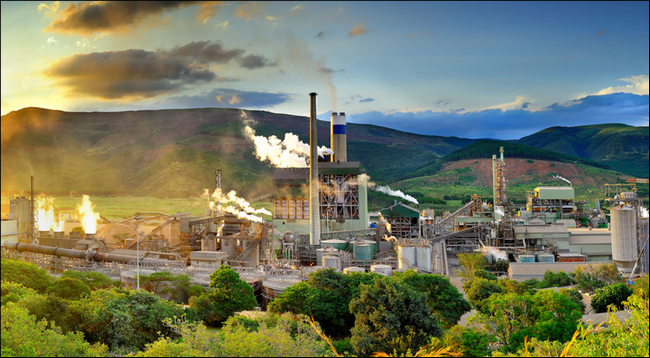 Sappi Ngodwana Mill
Sappi Ngodwana Mill
Compared to traditional systems, the POM paper machine wet end will deliver superior cleanliness in a compact degassing and cleaning package. This will enhance environmental performance with controlled air removal before the paper machine headbox – to help ensure proper operation and paper quality.
“AFT is proud to have been selected for this project and we are looking forward to a successful start-up in 2022”, local sales engineer John Pearson.
ABOUT AFT
AFT is a global supplier specialized in stock preparation, screening, refining and paper machine approach flow systems. With over 100 years of experience, we offer expert solutions that help mills produce more while using less energy, water and chemicals. Our solutions are tailored to the customer’s furnish, their application and the final product being produced in order to optimize their return on investment. For more information, please contact us at This email address is being protected from spambots. You need JavaScript enabled to view it..
ANDRITZ receives repeat order to supply key process equipment for Klabin’s Ortigueira pulp mill in Brazil
International technology group ANDRITZ has received an order from Klabin to supply energy-efficient and environmentally leading key equipment and processes for Klabin’s Puma Capacity Increase II project in Ortigueira, Paraná, Brazil.
Start-up is scheduled for the second quarter of 2023.
ANDRITZ’s delivery for the hardwood Fiberline capacity increase for the Puma I line includes modernization of the cooking, washing, screening and bleaching processes, which will increase the capacity from 3,742 adt/d to 4,080 adt/d. The order also includes a new ANDRITZ DD-WasherTM (drum displacer washer), which will ensure production of high-quality pulp, maximum operating time, and low chemical consumption, thus minimizing the environmental impact. The DD-Washer supplied to Klabin will be the 400th such washer to be sold worldwide.
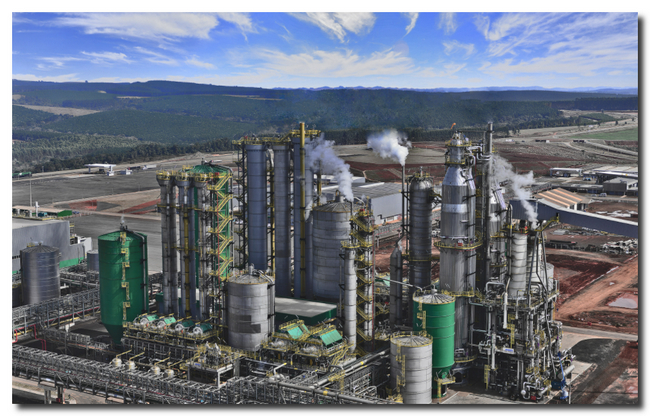 In 2016, ANDRITZ delivered two fiberlines for the Klabin Puma I pulp line. The original capacity was 3,500 adt/d, but this increased to the current level of 3,742 adt/d after the first capacity increase project that was started up in December 2020. © ANDRITZ
In 2016, ANDRITZ delivered two fiberlines for the Klabin Puma I pulp line. The original capacity was 3,500 adt/d, but this increased to the current level of 3,742 adt/d after the first capacity increase project that was started up in December 2020. © ANDRITZ
Pablo Cadaval, General Mill Manager of Klabin – Puma Unit, says: "We selected our reliable partner ANDRITZ to supply a new DD-Washer, a washer whose capabilities are already very familiar to us, especially its flexibility for higher production rates and low chemical consumption in bleaching.”
Rodrigo Vendramini, Project Manager of Fiber, Water and Effluent Lines at Klabin, continues: “We were pleased to hear that our newest DD-Washer is ANDRITZ’s 400th DD-Washer sold. In fact, we also have ANDRITZ’s 300th DD-Washer sold in our Puma I line.”
ANDRITZ will also deliver the sixth eucalyptus debarking and chipping line (with a capacity of 350 m3 sob/h) to this site, thus completing the existing ANDRITZ Wood Processing Plant in the Puma II line. This order is part of the second phase of the Puma II project and includes an ANDRITZ debarking drum, which provides excellent debarking results with very low wood losses, and a horizontally fed HHQ-Chipper (EXL model), ensuring high capacity without compromising on chip quality.
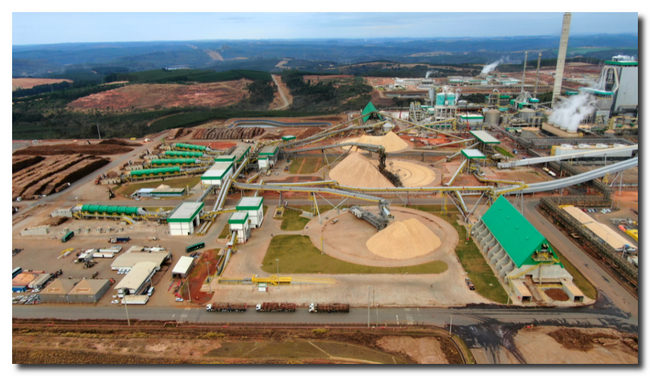 The four similar debarking and chipping lines were started up in 2016 during the Puma I project, and a fifth line was recently started up as part of the Puma II project. © ANDRITZ
The four similar debarking and chipping lines were started up in 2016 during the Puma I project, and a fifth line was recently started up as part of the Puma II project. © ANDRITZ
This order once again confirms the excellent business relationship between ANDRITZ and Klabin. ANDRITZ has supplied major pulp production technologies and process equipment for Klabin’s Puma I and Puma II pulp lines in Ortigueira. Currently, a complete biomass gasification plant is being supplied to the Puma II line. ANDRITZ is also in the process of supplying the world’s first sulfuric acid plant for a pulp mill, producing commercial-grade, concentrated sulfuric acid. It will serve Klabin’s Puma I and Puma II pulp lines once completed.
ANDRITZ GROUP
International technology group ANDRITZ offers a broad portfolio of innovative plants, equipment, systems and services for the pulp and paper industry, the hydropower sector, the metals processing and forming industry, pumps, solid/liquid separation in the municipal and industrial sectors, as well as animal feed and biomass pelleting. Plants for power generation, flue gas cleaning, recycling, and the production of nonwovens and panelboard complete the global product and service offering. Innovative products and services in the industrial digitalization sector are offered under the brand name Metris and help customers to make their plants more user-friendly, efficient and profitable. The publicly listed group has around 26,800 employees and more than 280 locations in over 40 countries.
ANDRITZ PULP & PAPER
ANDRITZ Pulp & Paper provides equipment, systems, complete plants and services for the production of all types of pulp, paper, board and tissue. The technologies and services focus on maximum utilization of raw materials, increased production efficiency and sustainability as well as lower overall operating costs. Boilers for power generation, flue gas cleaning systems, plants for the production of nonwovens and panelboard (MDF), as well as recycling and shredding solutions for various waste materials also form a part of this business area. State-of-the-art IIoT technologies as part of Metris digitalization solutions complete the comprehensive product offering.
